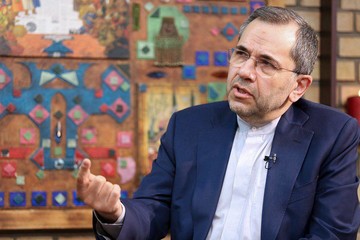Speaking to Khabar Online, Takht-Ravanchi said that JCPOA is a multilateral agreement signed by 7 countries in the presence of the high representative of the European Union the agreement was in process for over two and-a half years.
It means that JCPOA is not an agreement simply between two countries, but an international agreement ratified by the United Nations Security Council which proves its significance. Indeed, it is regarded as a part of international law. JCPOA is a document endorsed by the UN Security Council and must be abided by all the signatories.
The resolution confirms that JCPOA or Iran Nuclear Deal makes all parties internationally committed. However, one of the countries [the United States] which was a key negotiator has unilaterally withdrawn from JCPOA and restored the sanctions it had already imposed on Iran, which is against the international law. The United Nations and the European Union have not re-imposed sanctions against Iran, but one may say that the United States forces other countries to avoid meeting their commitments. It is true, however, some countries do and some don’t.
But for us, the key point is that we will abide by JCPOA- despite disagreements from some factions within the country- until our national interests allow. It means that whenever we realize that our national interests lie in withdrawal from JCPOA, we will immediately withdraw.
The incumbent officials of the U.S. think that they can achieve their goals through unilateralism. Such a view is revealed in their relations with Europe, Far East and other countries, which is not compatible with the philosophy of multilateralism. They are doing the same in the case of Iran. From one hand, they have left JCPOA and from the other, try to punish the other countries which have made agreements with Iran. This way, they cannot win the trust of other countries because the other party cannot make sure that they will abide by their commitments or not.
Referring to the statements made by some Democrat candidates in the upcoming U.S. election that have said they will restore JCPOA, Iran’s Ambassador to the United Nations said that it’s premature to judge their words, since during the election campaigns, they make some promises, but when they are elected as president, fail or avoid to fulfill their promises.
However, he rejected the hypothesis that the United States will wage a war against the Islamic Republic of Iran and considers it as a mere propaganda. The Iranian diplomat pointed out that although the U.S. Army is so powerful; the American government knows that the future of war with Iran will be obscure. They are aware of the power of Iranian forces, so, they will not play such a game whose result is uncertain. Anyway, it doesn’t mean that Iran welcomes a conflict with the United States.
Elsewhere in his remarks, Takht-Ravanchi referred to the issue of joining the Financial Action Task Force (on Money Laundering) or FATF which its deadline for Iran has been extended. He said that the Iranian government is following the issue within the framework of laws of the Islamic Republic, Parliament (Majlis), the Guardian Council and the Expediency Council. He believes that regarding its own advantages and disadvantages, joining the FATF would finally secure the financial well-being and interests of Iran. But at the moment, the legal process of the issue is underway and the final decision is yet to be made.



Your Comment